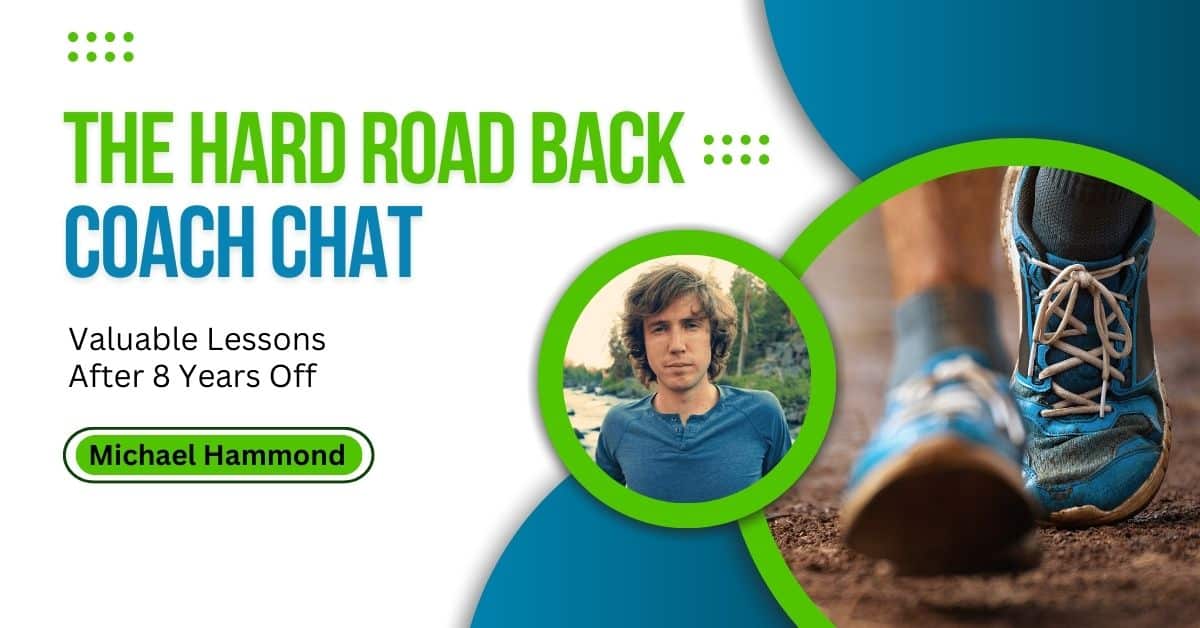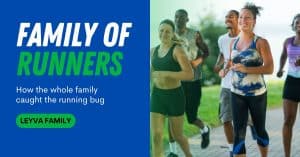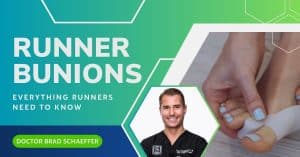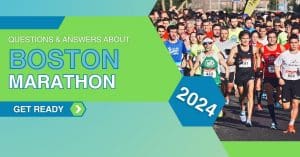After 8 years away, I’m finally making a return to competitive running. It’s been a challenging road back, and I’ve learned some valuable lessons along the way. Here are three key takeaways from my journey:
- **Training at Your Current Fitness Level:** I’ve realized the importance of training based on my current fitness level, rather than aiming for past personal bests. It’s been humbling, but ultimately crucial for progress.
- **Finding Your ‘Why’:** As my motivations have shifted, I’ve discovered that having a clear ‘why’ is essential for enduring the grind of training. Whether it’s overcoming health issues or being a positive role model for my children, identifying your ‘why’ can be a powerful driving force.
- **Balancing Health and Performance:** Through this journey, I’ve come to understand that prioritizing overall health is paramount. Better health doesn’t just lead to improved running performance, but also a more fulfilling life beyond the track.
Follow my journey towards the 2028 Olympic Trials Marathon on my YouTube channel by searching my name, Hammond. Thank you for your support, and I hope my experiences can inspire and motivate you on your own running journey! 🏅 #Running #Fitness #Motivation #NeverGiveUP
Cory Nagler [00:00:01]: ARC. If you listen to our podcast, you know our head coach, Michael Hammond. He's a father. He's a coach, and he's an all around great guy. But after 8 long years, he's finally making a comeback to once again call himself a competitive runner. Michael was a successful middle distance runner in the 20 tens, with an impressive 1500 meter PR of 3 37 and a top 10 US ranking. But chronic health issues cut his career short. And in 2016, he hung up the racing shoes for what he thought was for good.
Cory Nagler [00:00:34]: Now, 8 years later, he's decided to make a comeback. And as you'd expect after that much time off, he's finding running isn't quite as easy as it used to be. It's a hard road back. And today, he'll share with us the 5 things he's learned getting back to training after 8 years off. Okay. Here's Michael to tell you that story. Hello, runners, and welcome to the Run to the Top podcast, where our goal is making you a better runner with each and every episode. I'm your showrunner, Corey Nagler.
Cory Nagler [00:01:12]: And I'm not an elite runner, but together, we'll explore new strategies and topics to take your running to the next level. This podcast is created and produced by the expert team of coaches at runnersconnect
Coach Michael [00:01:31]: I retired from competitive running in 2016. I was training for the Olympic trials in the 1500 meters that summer, and out on the long run-in, like, late March, so pretty much exactly 8 years ago, I tore a muscle in my calf. And after that point, I tried to cross train for a little bit. It was just such a bad injury that it was very clear I was not gonna be healthy in time for the trials. And after that point, I walked away completely from running. I hung up the spikes, and I decided I was completely done, never gonna compete myself again. And now 8 years later, I'm making a comeback. My big goal is to make the 2028 Olympic trials in the marathon, but I'll tell you what, it's gonna be a long, long road.
Coach Michael [00:02:12]: In these past 8 years, I have barely run a step. I would say I've averaged maybe 1 or 2 runs a month, not a week, 1 or 2 runs a month. In 2023, I started to make this comeback. You know, I started about a year ago. It was last spring. I started to decide I wanna make a legitimate comeback, but I just crashed and burned for reasons I'll talk about shortly in this podcast. I'd counted it up on Strava. I ran 320 miles in 2023.
Coach Michael [00:02:40]: That's not gonna do it. That's less than 1 mile a day. So for all intents and purposes, I'm pretty much starting from total scratch. So today, I wanna talk about the 5 biggest things I've learned getting back to training after taking the last 8 years off. Number 1, the old days are the old days. In 2014, that's 10 years ago now, I can't believe that, I ran my PRs, my personal best. I ran in the 800 meters, I ran 149, 1500 meters, 337, mile 357, and the 5 k on the track, 1358. That 5 k, I know everyone says this, but it's not a great representation.
Coach Michael [00:03:17]: It was a bit of a rust buster. I was training with guys running in the neighborhood of, like, 13 20 to 13 35, so I think I was right around there. But, again, I know everyone says that. It doesn't really matter. The point is I was in good shape. I was in really, really, really good shape. In running, that adage is true that if you don't use it, you lose it. Even though I've stayed mostly lean, I've walked a ton usually like an hour or so a day with my dogs.
Coach Michael [00:03:42]: I've eaten clean. I've done all that. That running fitness, if you don't run, it's gone. And that's my reality right now. It is gone. And it's really, really hard not to compare not to compare myself to myself from back then. I'll go out for an easy run. You know, just this morning, I was averaging about 9 minutes per mile.
Coach Michael [00:04:01]: It was hilly, but nonetheless, back then, easy runs were somewhere in the 6:30 to 7 minutes per mile range, and I took those real real easy. I was good about that. Always taking my easy runs easy. Last week, I did a bit of a far lick, you know, trying to do some threshold work. I was running about 6:20 per mile pace, thereabouts. I just looked this up. Back in 2014, I did a workout 10 times a kilometer, 1 kilometer, averaging 255 per k with 1 minute rest. That's 4:40 per mile pace.
Coach Michael [00:04:33]: So there is an absolute chasm between my fitness right now and my fitness back then. That is the reality that I've had to accept. For me, the old days are the old days. There's a great scene in the show The Wire, if you've ever seen it. There's 2 guys are talking about, man, back in the old days, this never would have happened. And one guy just says, yeah. Well, the thing about the old days, they the old days. I'm having to essentially block all of that out in my mind because, otherwise, all I'm gonna do is compare, and that that leads to a hint of almost embarrassment.
Coach Michael [00:05:05]: You know? It's hard to be out there slogging 9 minute miles when the younger you would have been coasting along under 7 minute per mile pace, but that's the reality. You know, I slid back down the mountain these last 8 years, and starting that climb back up is a brutal process. I gotta leave the past behind. The old days are the old days. Number 2, the importance of training at your current fitness. This is something we stress at Runners Connect so often. You know, most people, when they want to get a training plan for a race, they go online, they go to some training plan generator website, They plug in their goal time for the marathon, and it spits out some training. That is the wrong way to go about it.
Coach Michael [00:05:44]: I like to give extreme examples to illustrate, like, why this is the case. Let's say you just ran a 3:30 marathon. Now you decide you wanna run 2:30 in the marathon. Do you just start doing 2:30 pace workouts? Of course not. That would make no sense. I'm seeing that in action. I'm learning it the hard way. I mentioned my goal is the 2028 Olympic Trials marathon.
Coach Michael [00:06:05]: They haven't announced times yet, like qualifying times, but it'll probably be somewhere in the 216 to 218 range. Do I just go out and do 216 pace workouts? No way. Those would kill me right now. I couldn't do a single rep at that pace. So as tough as it is, as, again, almost embarrassing as it is, as humbling as it is, I'm acknowledging the reality of my current fitness and training based on that. For me right now to do that, I'm utilizing both intuition and also heart rate. You know, heart rate for easy runs, I just kinda mentally cap my heart rate. You know, I don't really want it going above.
Coach Michael [00:06:42]: I just say 145 right now. That's really just a check against myself. You know, normally, that intuition, that knowing the effort level would be enough, but I'm using the heart rate as kind of like just a fail safe to make sure that I don't go above a certain intensity on on easy stuff. For everything on the hold, though, I'm just going by effort. You know, I mentioned that threshold workout I did last week. I wasn't aiming for anything. I was going purely effort based. Thankfully, I'm pretty intuitive with that.
Coach Michael [00:07:08]: I mean, that's something you learn after many, many years of training that, thankfully, I didn't forget, but so so so important to train at your current fitness level. Then that fitness gradually increases, and so too does your training. It's gotta be in that direction. It can't be the other way around. You don't force your fitness to increase by increasing your training paces, for instance. It has to be your fitness first.
Finn Melanson [00:07:35]: Let's face it. Running is hard on your joints, and it only gets worse as you get older. The repetitive stress inflicted on your joints from running can slowly break down joint cartilage and reduce flexibility, which creates a vicious cycle of further breakdown and pain. And that's why I started researching how I could start to protect my joints as I got older, and this led me to Joint Health Plus from Previnix. The main active ingredient, NEM, is clinically proven to reduce joint pain, joint stiffness, and improve joint flexibility in 7 to 10 days, and clinically proven to protect joint cartilage from breakdown during exercise. In fact, NEM is clinically proven to be up to 5 times more beneficial than glucosamine and chondroitin alone or in combination. I saw immediate results when I started using Joint Health Plus, and that's why I reached out to Prevenex to see if we could put together an offer for you guys. So if you're suffering from joint pain or simply wanna get a jump start on protecting your joint health as you get older, head to runnersconnect.net forward slash joint, and use the code rtt15 to save 15% on your first order.
Finn Melanson [00:08:42]: Plus, they offer a 100% money back guarantee, no questions asked if you don't feel the benefits too. Again, that's runnersconnect.netforward/joint, and use the code rtt15 to save 15% on your first order. Outside of training deficiencies, low iron is one of the most common reasons for poor results during workouts and races. Recent research indicates that almost 56% of male runners and 86% of female runners suffer from an iron deficiency that severely hampers performance. The problem with eating iron rich foods or supplementing with traditional iron supplements is that iron is notoriously difficult for the body to absorb and utilize. In fact, only about 25% of dietary iron found in animal sources is absorbed, while 17% or less of the iron from plant sources is absorbed. But Mass Iron has found a way to combat these absorption issues to ensure you can get the iron you need for health and performance. By combining the most efficiently absorbed form of elemental iron with clinically proven ingredients to aid in absorption, mass iron performs like no other iron product on the market.
Finn Melanson [00:09:59]: In fact, clinical research has shown the combination of ingredients in mass iron can quadruple absorption and increase bioavailability by 30%, all while reducing GI issues by 50%. Check out the research and results for yourself at massedge.comforward/iron. That's mas e dge.comforward/iron. Plus, runners connect fans will automatically save 20% on any
Coach Michael [00:10:31]: purchase. Number 3, you gotta have a why. Why are you doing this? You know, what's your motivation? What gets you out the door so early in the morning or when you're tired or when it's crappy outside? What is your why? I've known runners who, you know, their talent took them really far, maybe even onto a d one college team, but they didn't necessarily have a why. They didn't necessarily love it and love training and love competing enough to last. Because, you know, when you're younger, like high school, for instance, everything is kinda set out for you. You know, you have school at this time, practice at this time, you're running these races, but when you're older, it's all on you, which is incredibly freeing. I mean, total blank slate. It's awesome.
Coach Michael [00:11:14]: But without that why, you're probably gonna fail. You're almost certainly gonna fail. My why is way different than it was when I was younger. Back then, honestly, I just wanted to win. I loved winning, and I hated losing. Running fast, winning races, trying to make the Olympic team, that's what drove me every day. Now it's different. You know, my why really comes down to 2 things.
Coach Michael [00:11:37]: Number 1, I'm finally fixing a health problem that has plagued me for the last 10 years. I mentioned earlier that a calf strain kept me out of the Olympic trials in 2016, but the reality was I had been struggling with a sort of phantom health issue that I could not figure out for a couple years already before that point. Unfortunately, that struggle has continued in the 8 years since. And until this year, 2024, I finally figured it out. I'm finally on the path to fixing it completely, and I already feel so so so much better. It's incredible. I mean, I I really can't even articulate it. That has me thinking in a lot of different directions, but the biggest thing is I wanna train, man.
Coach Michael [00:12:16]: I wanna see what my healthy body can do. I know I'm older. I'm 34 now, and I almost certainly won't beat my middle distance PRs from my early twenties. That's just the reality. But I'm still young enough in the marathon game, and I just I wanna see what I can do. The second thing number 2. The the second thing, my second why is my children. My son was born in 2022.
Coach Michael [00:12:38]: He's 18 months old now. For all the parents out there, his molars are coming in, so he's being a bit of a nightmare right now. My wife sent me a Reddit thread this morning that said, help. My 18 month old is suddenly Satan. So that resonated with us a bit. My daughter was just born in February. She's perfectly healthy. We're so grateful.
Coach Michael [00:12:55]: And having children makes me think about, you know, what do I want to pass on to them other than material stuff, you know, money, whatever. What do I want to instill in them? What values? What qualities? And I'm a big believer in show, don't tell, especially with kids. You can tell them one thing, but if your actions contradict that, at minimum, they'll be confused and they'll probably just mimic your actions more than your words. So it's certainly true with with young kids. My wife keeps hounding me about swearing. I gotta get better with that. And I think about my own qualities. If you'll allow me to pat myself on the back for a minute, I do think I have several positive qualities that I know I'll pass on to my kids.
Coach Michael [00:13:35]: You know, one is I've always set big goals. I've always been good about that. I've always dreamed big. Even when those goals are hard to say out loud, you know, even if you get laughed at, I've still reached for the stars. I mean, I'm doing that right now. I'm currently doing runs at 9 minute pace, and my goal is to make the Olympic trials marathon. You know, I'm I'm disciplined. From 2006 to 2016, I did not miss a single run for any reason other than injury or illness.
Coach Michael [00:13:59]: That was kind of my competitive career, about 06 to to 2016. And even then, even if I had an injury or had an illness, it took quite a bit to keep me from running. I remember running with a fever. I remember running through injuries. None of that was a good idea, but, man, I got my training done. I never missed a run just because I didn't feel like it. I could go on, but I'll spare you me continuing to brag about myself, but there's one quality that I know I'm missing, one important thing I know I haven't lived by in my own life and that's following through. I'm great at dreaming big.
Coach Michael [00:14:31]: I'm disciplined at doing the work, but sometimes I've failed to finish what I started. In 2012, I qualified for the Olympic trials in the 1500 meters. I mean, I made it. All I had to do was get on the plane and fly out to Eugene, Oregon, step on the starting line, and I would have competed at the Olympic trials, but I didn't. I didn't even get on the plane. That's a long story, but it's something that has haunted me ever since. You know, I set a big goal back then. I wanted to make the Olympic trials.
Coach Michael [00:14:59]: I trained hard for it, and I made it. I earned that, but I didn't follow through. And in doing so, I let down my coach, I let down my teammates, my loved ones, and I let down myself. And I just I really hate that. I know it's a long time ago. I'm not sitting here every single day beating myself up about it, but how can I instill that quality, that following through quality in my children without having lived it myself? So, thus, I wanna change that. And that's why I'm gonna be on that starting line in 2028 at the Olympic trials marathon to show my kids that their dad can set big goals, be disciplined every day and working towards them, and follow through on them. That's my why.
Coach Michael [00:15:37]: Number 4 is I've gained a huge respect for recreational runners. Remember what I said earlier how when you're younger, everything is just kinda set out for you. You don't really have to juggle a lot. I mean, maybe you do, but there's very little real hard responsibility. Even back in 2016, I was working just enough just to be able to pay the bills, you know, but my number one focus was my training. Everything revolved around that. Now things are different, obviously. My family's number 1.
Coach Michael [00:16:04]: Work is number 2. Running is not at the top of the totem pole, it's given me a huge amount of respect for you guys, for you. Man, it's a lot tougher when you have so much to juggle. Work, family, social life, your own health, aging, all these things I didn't worry about back in the day. You know, I mentioned that my wife and I, we had our daughter in February. She's about to be 2 months old. And for her 1st month, I wanted to completely take care of our son pretty much on my own. I wanted my wife to have that month to get things going with our daughter without having to worry about also taking care of our son.
Coach Michael [00:16:38]: That meant waking up real early to run. Mornings are really the only time I can run, and my son gets up somewhere between 6 and 7, so I had to run before that. There were even several mornings where he got up at, like, 5:45. Look. I'm a morning person in general, but, man, a 4:30 alarm just sucks. Big, big props to you. Those of you who can do that all the time, big, big props to you. I've just gained a massive amount of respect for you, you know, you guys out there putting in all those miles and training with all the other stuff going on in your lives.
Coach Michael [00:17:07]: It's been a big lesson for me. Number 5, last one. Your overall health is more important than your running. More specifically, running faster shouldn't come at the expense of your health. You hear it said sometimes that fast runners often aren't necessarily healthy. That means a lot of things. It can mean, like, weight. You know, sometimes runners will, you know, be a little bit too skinny in an effort to run faster.
Coach Michael [00:17:32]: It could mean just just hard training in general, people training so hard that they destroy their bodies. They destroy their endocrine system. They're riding that red line too hard or they're crossing that red line. And for them, maybe there's a trade off. You know, maybe it's worth it for them, but I've really learned the importance of your overall health coming first. The good thing is more often than not, that's gonna lead to better running performances anyway. You know, those situations I just talked about, those are elite athletes, top of the mountain peak in terms of performance where the margins are just razor thin. That's irrelevant here.
Coach Michael [00:18:05]: You know, for us for us mere mortals, especially when we're a bit older, our overall health has to come first. But I also think the good thing is the 2 can go hand in hand. You know, the healthier you are, the harder you can train, the better you'll recover, and on and on, thus, the faster you'll run. And, of course, the healthier you are, the healthier you are, the better you'll be in other aspects of life as well. That's really where I'm at with what I want people to get out of running, you know, what I want my effect on the running world to be. I think people can achieve better health and ultimately a better life through running. And that's it. Five big lessons I've learned on the hard road back to running.
Coach Michael [00:18:42]: I hope you enjoyed it. If you wanna follow my journey towards the Olympic trials marathon, I'm posting on my YouTube channel, just my name, Hammond. Thank you so much for listening, you guys. We really appreciate all of you, and we'll talk to you again soon.
Cory Nagler [00:19:07]: Thanks for listening to the Run to the Top podcast. I'm the showrunner at Runners Connect, where as always, our mission is to help you become a better runner with every episode. You can connect with me on Instagram at corey_ Nagler. Or through Strava by searching Corey Nagler, and please consider connecting with the rest of our team at runnersconnect.net. If you're loving the show, you can help us reach more runners by leaving a rating on Spotify or Apple Podcast. Lastly, if you want bonus content, behind the scenes experiences with guests, and premier access to contests, then consider subscribing to our newsletter by going to runnersconnect.netforward/podcast. I'll see you on the next show, but until then, happy running, everyone.
Sign up to receive email updates
Enter your name and email address below and I'll send you periodic updates about the podcast.
Connect, Comment, Community
- Follow RunnersConnect on Instagram
- Join the Elite Treatment where you get first dibs on everything RTTT each month!
- Runners Connect Winner’s Circle Facebook Community
- RunnersConnect Facebook page
- GET EXPERT COACHING AT RUNNERSCONNECT!
This week’s show brought to you by:
Previnex Joint Health Plus
Joint Health Plus from Previnex is clinically proven to reduce joint pain, joint stiffness,and improve joint flexibility in 7-10 days.
In fact, it is clinically proven to be up to 5 times more beneficial than glucosamine and chondroitin alone or in combination.
I saw immediate results when I started using Joint Health Plus and that’s why I reached out to Previnex to see if we could put together an offer for you guys.
If you’re suffering from joint pain or simply want to get a jump start on protecting your joint health as you get older, head to runnersconnect.net/joint and use the code RTTT15 to save 15% on your first order.
MAS Iron
Outside of training deficiencies, low iron is one of the most common reasons for poor results during workouts and races.
Recent research indicates that almost 56% of male runners and 86% of female runners suffer from an iron deficiency that severely hampers performance.
The problem with eating iron-rich foods or supplementing with traditional iron supplements is that iron is notoriously difficult for the body to absorb and utilize.
In fact, only about 25% of dietary iron found in animal sources is absorbed while 17% or less of the iron from plant sources is absorbed.
But MAS Iron has found a way to combat these absorption issues to ensure you can get the iron you need for health and performance.
By combining the most efficiently absorbed form of elemental iron with clinically proven ingredients to aid in absorption, MAS Iron performs like no other iron product on the market.
In fact, clinical research has shown the combination of ingredients in MAS Iron can quadruple absorption and increase bioavailability by 30%, all while reducing GI issues by 50%.
Check out the research and the results for yourself at masedge.com/iron. Runnersconnect fans will automatically save 20% on any purchase.







